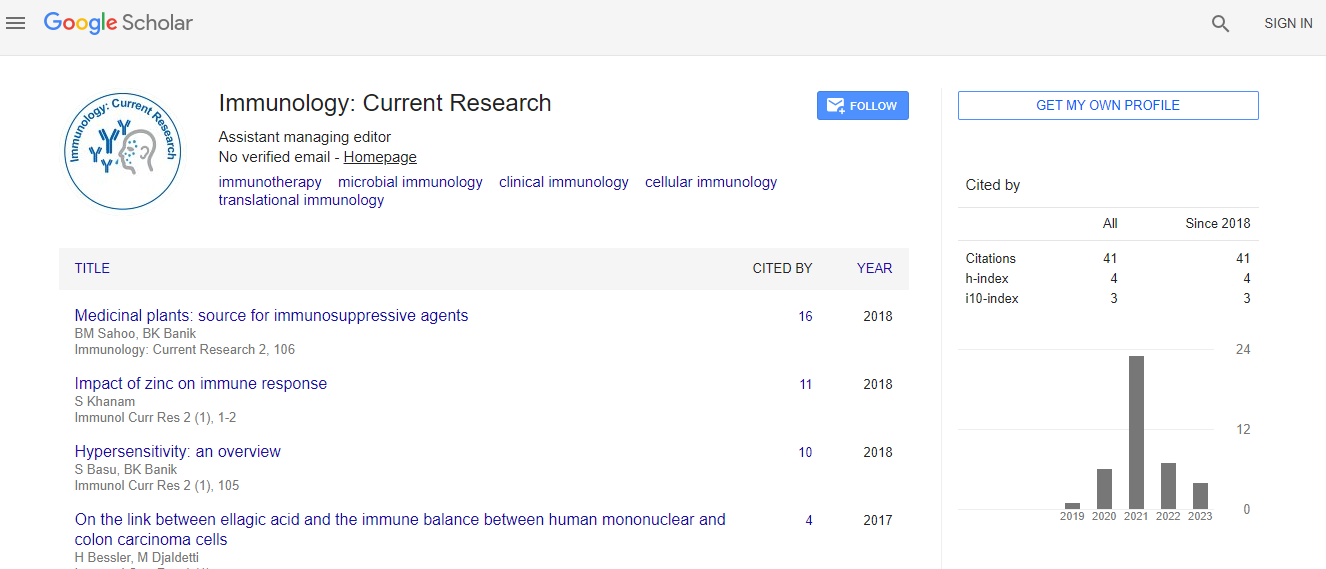Mechanisms of Autoimmunity: Unraveling the Genetic and Environmental Triggers of Immune Dysfunction
*Corresponding Author:Received Date: Jan 01, 2025 / Accepted Date: Jan 31, 2025 / Published Date: Jan 31, 2025
Citation: Marco S (2025) Mechanisms of Autoimmunity: Unraveling the Geneticand Environmental Triggers of Immune Dysfunction. Immunol Curr Res, 9: 241.DOI: 10.4172/icr.1000241
Copyright: © 2025 Marco S. This is an open-access article distributed under theterms of the Creative Commons Attribution License, which permits unrestricteduse, distribution, and reproduction in any medium, provided the original author andsource are credited.
Abstract
Autoimmunity occurs when the immune system mistakenly targets the body’s own cells and tissues, leading to
chronic inflammatory conditions and tissue damage. The mechanisms underlying autoimmunity are complex and
involve the interplay of genetic predisposition and environmental factors. Recent advances in genomics have identified
numerous genetic risk factors associated with autoimmune diseases, including polymorphisms in genes related to
immune regulation, antigen presentation, and inflammation. Environmental triggers, such as infections, environmental
pollutants, and dietary factors, can further modulate immune responses and exacerbate disease. Epigenetic
modifications and the gut microbiome are also emerging as crucial contributors to autoimmunity. Understanding
these mechanisms is vital for identifying individuals at risk, developing early diagnostic tools, and designing targeted
therapies. This review explores the genetic and environmental triggers of autoimmunity, examining their roles in
immune dysfunction and offering insights into future therapeutic strategies for managing autoimmune diseases.

 Spanish
Spanish  Chinese
Chinese  Russian
Russian  German
German  French
French  Japanese
Japanese  Portuguese
Portuguese  Hindi
Hindi 
